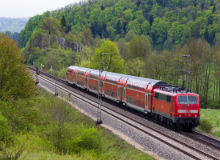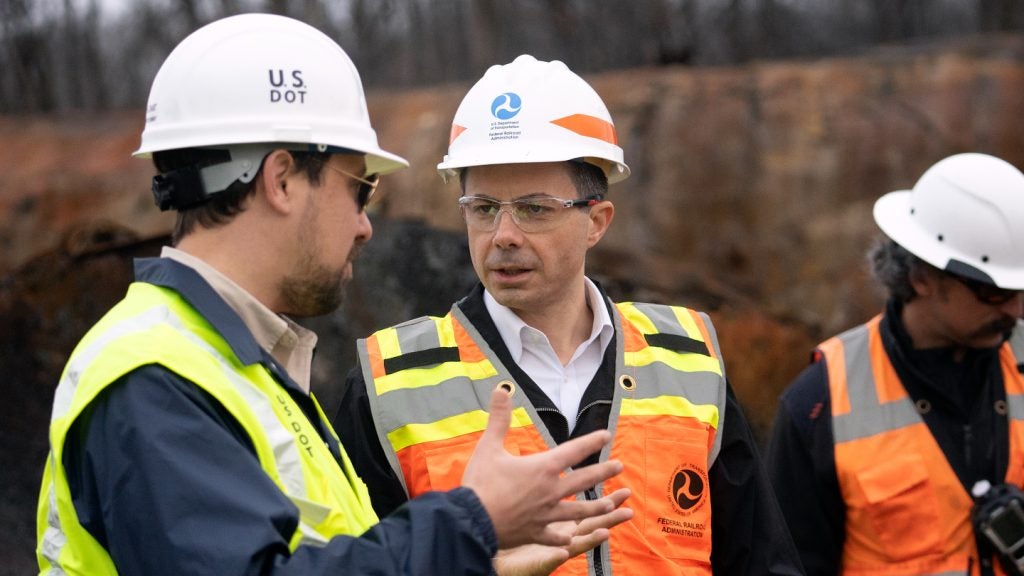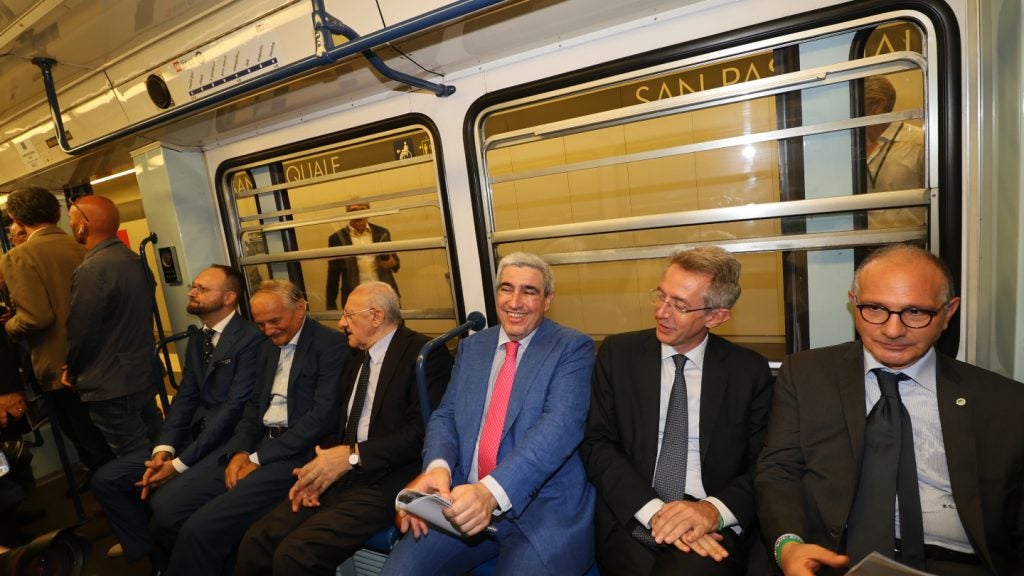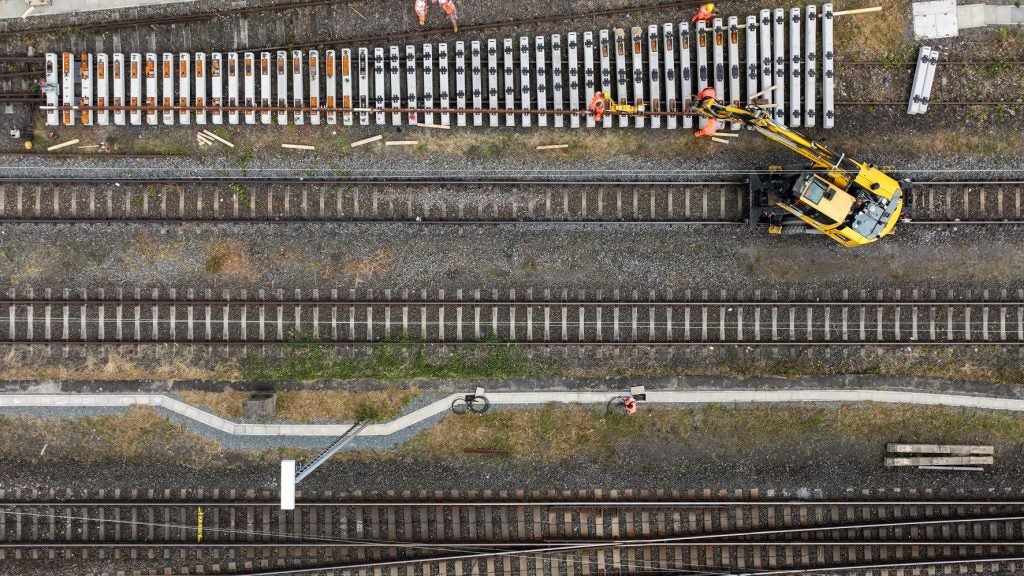

Deutsche Bahn’s (DB) current outlook could be described as gloomy at best. The €198m drop in earnings before income and taxes (EBIT) has come in conjunction with a 39% fall in after-tax profits from €642m to €391m and an increase in its long-term debt of €1.4bn to €17.6bn.
To compound the problem, overall passenger journeys fell by 16 million to 985 million, a drop of 1.6%. On long-distance routes, the decline was 1.2% and 2.8% for local and regional traffic respectively. Rail freight witnessed a 6% reduction in first-half tonne-km from 52 billion to 48.9 billion.
While the company has attempted to put a brave face on the situation – describing the increase in debt as "in line with expectations" – there are certainly many questions to be asked as DB chief executive Dr Rüdiger Grube tries to pull the operator through the mire.
Streamlining the business
One of the fundamental cogs in Grube’s recovery plan is the jettisoning of senior management figures, including Ulrich Homburg, board member for passenger traffic, Gerd Becht, board member for compliance, legal affairs and corporate security, and Dr Heike Hanagarth from the former technology and environment division.
Two new appointments will join the company’s board of management: Ronald Pofalla will lead the economic, legal and regulatory affairs division, and Berthold Huber will join the new traffic and transport group.
How well do you really know your competitors?
Access the most comprehensive Company Profiles on the market, powered by GlobalData. Save hours of research. Gain competitive edge.

Thank you!
Your download email will arrive shortly
Not ready to buy yet? Download a free sample
We are confident about the unique quality of our Company Profiles. However, we want you to make the most beneficial decision for your business, so we offer a free sample that you can download by submitting the below form
By GlobalDataProfessor Dr Christian Böttger an expert in railway organisation and finance from Berlin’s University of Applied Sciences for Engineering and Economics, believes changes to DB’s management structure are just the start.
"Changing heads may be a start of a restructuring," he says. "The main task will lie in discussing the portfolio and improving operational performance. Particularly in the rail freight unit, the station business and the long distance division, [which] are said to have room for improvement."
Reports indicate that 5,000 jobs could be cut in DB’s freight division, although this has not been confirmed. "These are ideas that are at a working level and have in no way been agreed with the board, so we will not comment," said a spokesperson in October.
However, Grube did confirm to German newspaper Welt am Sonntag that "jobs will go as part of the restructuring".
According to Böttger, "hardly anyone [in Germany] understood how serious the crisis is".
Another plan that Grube claimed will enable DB to "focus even more on rail operations in Germany" is the integration of freight and passenger operations into the new traffic and transport division. This will include DB Schenker Rail, DB Long Distance, DB Regio, and DB Sales.
Is privatisation the answer?
Perhaps the most significant shift in operations is the potential to privatise, at least partially, DB Arriva, the company’s international passenger subsidiary, bought for $2.4bn in 2010, as well as global logistics business DB Schenker Logistics.
"I was never convinced that the international businesses of DB brought significant synergies," notes Böttger.
"DB has not made sufficient profit in these businesses; therefore, I am in favour of selling them completely. It should [focus] its efforts on improving the ailing rail businesses in Germany.
"DB management now has to admit that the dream to transform the company into a major global logistics company is not working."
Böttger’s preference is not currently on the agenda, however. Grube has insisted that DB will not completely divest from either company but will instead seek investors for minority stakes.
Sales in Arriva could start early next year, as an investment bank is currently exploring options. A listing on the stock market is also being considered, although this is unlikely at the present time.
According to some commentators, raising the prospect of part-privatisation demonstrates DB’s willingness to raise funds other than from the government, and a similar plan could flow to other areas, such as freight, in the future.
Striking at the heart
Grube has partly attributed the situation to nine strikes by train drivers and harsh storms, which he said cost the company €250m in lost earnings in 2014 and €250m in the first half of 2015.
"After the strikes in summer, 8% to 10% of the customers didn’t come back," Grube told Welt am Sonntag.
Böttger says that while the strikes have been a major contributor to the unrest, the cause goes much deeper.
"The strike has contributed to the financial weakness, however, the financial problems lie deeper," he says.
"DB has always maintained a cosy relationship with the big traditional union (EVG). For years, they tried to ignore or to crush the other union, GDL. This has clearly amplified the conflict."
The strikes – the latest action in May was the ninth in ten months – paralysed the rail network, with each strike day reportedly costing the German economy approximately £71m. The GDL train drivers’ union called for a 5% pay rise for 20,000 drivers and a shorter working week, while DB’s offer included a 4.7% pay rise and a one-off €1,000 (£715) payment.
The strike was swiftly called off and GLD agreed to mediation with DB. A resolution followed shortly after.
Difficult times ahead
So, while DB has seemingly solved one problem, it is not yet out of the woods.
A supervisory board has approved a six-point plan that, starting on 1 August, aims to save more than €100m at the corporate level.
Announcing the changes, Grube said: "DB is going to become leaner, faster, more efficient and even more customer focused.
"Leaner management and structures, and more focus on customers will enable us to successfully tackle the rapidly changing challenges in the world of mobility and logistics."
While DB’s intentions are clear, putting them into practice is an altogether different matter. Reducing the number of senior managers could streamline decision making and communication, but much will depend on how the company recovers financially.
"The room for manoeuvring has tightened given the poor financial condition of the company," adds Böttger.
"Politically, support for rail is very weak. The relationship between the actors (DB, public transport authorities and private rail companies) is rather bad, hindering efficient lobbying for the rail sector.
"I can understand the strategy of DB management, but I think the government as an owner should see that the rail sector is more than [just] DB."
The crisis has certainly shocked and opened up a much wider debate about DB’s focus on its core railway commitments. Only time will tell if the restructuring master plan gets it back on the right track.







